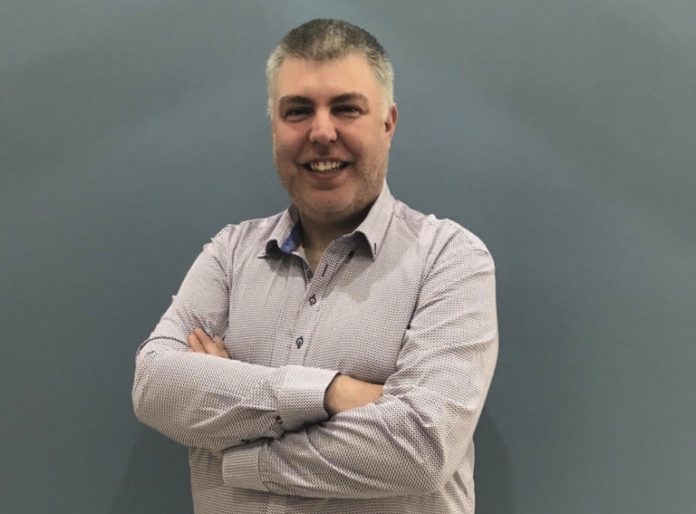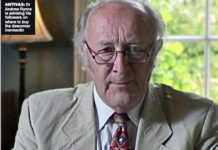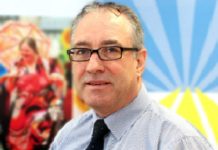Michael O’Farrell – Investigations Editor
IRELAND is facing an imminent exodus of public health doctors just as they are needed most, insiders have warned.
‘What Ireland is going to see after Christmas is an exodus,’ a public health consultant who has already left in frustration told the Irish Mail on Sunday.
Dr Niall Conroy – who is now a director of public health in Queensland, Australia – said the colleagues he had left behind in Ireland were at their wits’ end and looking to leave. ‘I’ve never seen them as angry and as demoralised, and as tired,’ he said.
‘I don’t know how anybody even imagines that it’s appropriate for small public health units to be managing hundreds of cases per day.
‘I think you’ll see a lot of retirements and I think you’ll see a lot of people go to other jurisdictions,’ he said. ‘There are lots of people emailing me about whether there are jobs in Australia. There are lots of people talking about taking up jobs in different parts of Europe.
‘My colleagues in New Zealand, I know for a fact, are having people contacting them about jobs.’
Dr Conroy said public health doctors in Ireland – who are perpetually under-resourced and sidelined – could not deal with the onslaught of cases facing them.
‘Sometimes when you work long hours you feel you’re getting something done but what they’ve been ‘They tell me there’s just a tsunami of cases’
telling me is there’s just a tsunami of cases and they don’t feel they’re making progress.’
The comments come as Dr Ann Dee – one of the HSE’s leading public health consultants – said the ‘overwhelmed’ public health sector was so catastrophic that public health doctors are ready to ‘throw in the towel’.
This week Dr Dee also told the MoS that the Government had done nothing to prepare for a second wave except ‘a lot of dragging of heels’ over the summer as it failed to back its struggling public health teams.
Her frustration was echoed by leading Trinity College scientist Dr Tomás Ryan.
‘I don’t see the summer as being used anywhere near as effectively as it could have been,’ he told the MoS.
‘The reality was we did scale down our testing and it wasn’t rebooted fast enough. The reality is our public health physicians are not adequately supported and we don’t have enough contact tracing. And the whole system is still slow.’
This criticism came during a week in which HSE boss Paul Reid angrily rejected accusations that the HSE didn’t use the summer to prepare for a second wave.
Mr Reid said the accusation was ‘ill-informed, inaccurate and doesn’t do any justice to the relentless work on the ground’.
But the 60 HSE public health officials responsible for tracking down and extinguishing outbreaks in Ireland’s eight public health regions feel differently having seen decades of unfulfilled government promises to give them the status and resources they need. (See panel.)
Their frustration is only partly vented by Dr Dee who spoke publicly thanks to her role as their representative on the Irish Medical Organisation (IMO).
But most HSE public health doctors must remain publicly silent about a system they say is on the verge of collapse. Privately they speak of working 128-hour weeks and going as long as a month without a day off.
Their views can be gleaned from colleagues such as Dr Conroy who left the HSE for Australia in January. This gives him a unique insight into the vast difference in how Ireland and the State of Queensland – with a similar population – have dealt with Covid-19.
In contrast to Ireland – with 40,000 cases and more than 1,800 fatalities – Queensland has had 1,160 cases and just six deaths.
Unlike in Ireland, the public health system there is fully resourced and Australia implemented a closedborder policy with quarantine hotels for 14 days for anyone returning to the country.
Queensland also closed its borders to other states when some of the quarantine arrangements at hotels elsewhere in Australia failed and sparked outbreaks.
As a result, Dr Conroy said society and business in Queensland was booming to the extent where he has struggled in recent weeks to get a restaurant booking or hotel room.
‘It’s jammers here,’ said the Dubliner. ‘None of us like border controls – they’re awful things – but I have to say they made life pretty good for us over here.
‘I haven’t had a case of Covid to deal with in about two months. There’s no Covid in 90% of Australia at the moment.’
In contrast he described the situation of his colleagues in Ireland as ‘grim’ saying one Irish colleague was being asked to deal with 40 clusters in a week. ‘I haven’t dealt with 40 clusters in the whole pandemic and that would never happen here,’ he said.
‘I’ve had individual clusters in high-risk settings where it’s been the only cluster I’ve been dealing with and I haven’t been able to get out of the office until midnight most nights. You can’t deal with 20 or 30 or 40 clusters no matter how good you are… They’re not going to be able to shut them all down and that leads to further transmission into the community.’
In addition to the impossible demands they face, Dr Conroy said his former colleagues in Ireland are hampered by years of being ignored and undermined.
Central to that is the fact that Ireland’s public health doctors are classed by the HSE as specialists, not consultants and this has farreaching consequences.
‘Because they weren’t consultants, people weren’t listening to them and therefore nobody really did any significant pandemic planning in Ireland,’ Dr Conroy said.
‘If you’re the most qualified person to run an outbreak – which is what public health doctors are – you need to be able to make the decisions. Over here I’m in the room with all the consultants – as the consultant in public health – and usually I’m the primary decision-maker. It’s a real difference in how you do your job,’ Dr Conroy said.
‘In Ireland that’s not there. You don’t have the admin support, you don’t have the team to support you. Here I have full consultant status. I have a team of 16 people. I have lots of education leave to keep up with the science and I can work in the university as well, which is not allowed in Ireland.’
The lack of consultancy status – despite years of Government promises – means Ireland stands little chance of attracting the public health experts it needs if other waves are to be prevented.
‘The fact they have been treated so badly means you can’t get any. They’ve all gone. You can’t get them,’ Dr Conroy said.
‘Every minister that I’ve known has said that Ireland’s public health doctors need to get consultant status so we can actually recruit them and have them ready to deal with a crisis,’ he said.
‘Every minister has said that’s going to happen and it never does.’
That’s true of current Health Minister Stephen Donnelly too.
‘I hope to have news to share with the committee soon on public health doctors and transitioning them to where they should be and where they deserve to be, namely, as consultant-grade doctors,’ the minister told the Oireachtas Covid-19 committee in August.
But it hasn’t been done yet – even in the wake of a public health doctors’ strike that was postponed this year due to the pandemic.
Instead – having scaled down during the summer – the HSE has now begun recruiting hundreds of contact tracers to work in call centres. But contact tracers are very different to trained public health officials and there’s a fear that resources may not be channelled to where they are really needed.
‘The politicians and the media don’t understand that contact tracing is probably about 25% of your response to a big outbreak,’ said Dr Conroy.
‘The rest of it is what we would call investigation and control and it needs to be done by properlytrained public health doctors and public health nurses. What you need are people who can distil all that information and act on it.’
‘They seem to be told what they’re getting rather than being asked what they need,’ he said of his Irish colleagues. That’s really what my colleagues are very frustrated about.
‘None of them have been asked what they need. They’re being told by politicians what they need. I would go nuts if it was my public health unit here.’
This week the HSE said funding had been obtained for 255 additional permanent staff at public health units.
But Dr Conroy and others said this should have happened a long time ago and now it was too late to prevent a third and subsequent waves in Ireland.
‘Watching this from afar my mind boggles listening to recent talk of recruiting extra people eight months into a pandemic,’ he said. ‘The recruitment should have happened very early on and it also should have happened in the context of a strategy. Ireland, as I can see it, has no real strategy. Ireland is just sort of seeing how it goes.’
Multiple reports on how to fix Health… no action
THERE is no problem that a Minister for Health won’t try to fix with a report.
However, that prescription rarely cures the illness and further ‘scripts’ are often required. That’s been the case repeatedly when it comes to Ireland’s unfit-for-purpose public health structure.
In 2013 then-Health minister James Reilly set up a working group review of medical training and career structures throughout the medical professions.
Chaired by DCU Professor Brian MacCraith, it looked at every speciality, including public health doctors. After examining the public health situation, the first MacCraith report, published in 2014, called for a repeat prescription – another report.
Specific concerns about the sector included problems with recruitment, retention of staff and the lack of attractiveness public health offered as a career.
Ever since then the MacCraith working group has been producing implementation progress reports for the Department of Health – of which there have now been seven.
But throughout the reigns of Leo Varadkar and Simon Harris nothing has really changed except there have been other reports.
For example, in September 2018 Gabriel Scally’s report into the CervicalCheck scandal pointed to how a better public health input to screening programmes might have avoided the scandal.
‘Public health programmes, like screening, vaccination, tobacco control or infectious disease surveillance, require a skilled and valued public health workforce. There was, unfortunately, limited public health medicine input into
CervicalCheck and I firmly believe that was to its detriment,’ Dr Scally’s report concluded.
‘The time has surely come where public health physicians are accorded the same recognition as clinical colleagues and their skills deployed at the core of all public health programmes.’
Months earlier, in April 2018, another Department of Health report on the ‘role, training and career structure of public health physicians in Ireland’ had drawn a similar conclusion.
In particular this report – by consultants Crowe Horwath – called for the urgent elevation of public health doctors to consultant status and a new national strategy for public health.
The new approach was needed, the report said, to ensure public health units could take on ‘national leadership in major health protection crises and incidents’.
The Crowe Horwath report addressed the threats posed by
Must ensure ‘public health can lead in crises’
failures to modernise the system.
‘The Irish health system will be increasingly unable to recruit and retain high-calibre public health doctors, at a time when it will need to increase significantly the number of new entrants into the speciality over the next five to 10 years in order simply to replace the large numbers who will be retiring,’ it read.
‘Under present circumstances, the status and remuneration available to senior public health doctors in Ireland will make it difficult for Irish employers to compete within a very demanding global medical labour market.’




